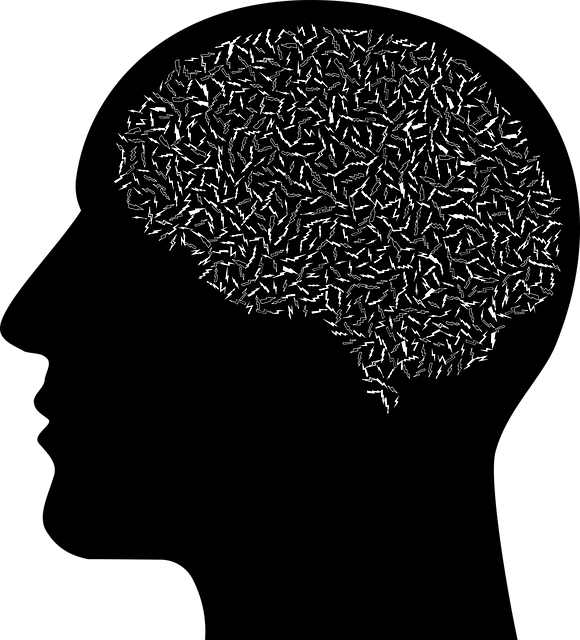Greenwood Village French Speaking Therapy is revolutionizing mental health representation by addressing cultural gaps and promoting inclusive portrayals. They acknowledge media's power in shaping public understanding, aiming to challenge stereotypes through accurate, positive depictions. By catering to the unique needs of the French-speaking community, their holistic approach emphasizes emotional intelligence and culturally responsive self-care, setting a new standard while encouraging open dialogue about mental wellness.
Mental illness representation in media significantly impacts public understanding of mental health. This article explores the challenge of inaccurate portrayals and offers solutions to foster positive change. We delve into the profound effects of media on mental health awareness, highlighting initiatives like Greenwood Village French Speaking Therapy that bridge cultural gaps toward accurate representation. Additionally, we provide strategies for promoting healthy media depictions, emphasizing the role of responsible storytelling in reducing stigma.
- Understanding the Impact of Media Portrayal on Mental Health Awareness
- Greenwood Village French Speaking Therapy: A Cultural Bridge to Accurate Representation
- Strategies for Promoting Positive Mental Health Depictions in Media
Understanding the Impact of Media Portrayal on Mental Health Awareness

Media portrayal plays a pivotal role in shaping public understanding of mental health issues. The way mental illnesses are depicted in films, television shows, and other forms of media can significantly influence societal attitudes and perceptions. Positive and accurate representation in the media has the potential to foster public awareness campaigns that challenge stigma, promote empathy, and encourage individuals struggling with mental health issues to seek support. Conversely, negative or stereotypical portrayals can perpetuate misconceptions, leading to further marginalization of those living with mental illness.
Greenwood Village French Speaking Therapy recognizes the power of media in both perpetuating and alleviating mental health challenges. Through community outreach program implementations and innovative initiatives such as the Mental Wellness Podcast Series production, we aim to contribute to a more nuanced and accurate public awareness campaigns development. By addressing these issues directly through accessible resources and open dialogue, we strive to create an environment where everyone feels comfortable seeking help and supporting one another’s mental wellness.
Greenwood Village French Speaking Therapy: A Cultural Bridge to Accurate Representation

In a significant step towards enhancing mental health representation in media and culture, Greenwood Village French Speaking Therapy stands out as a beacon of accurate portrayal. This therapy initiative bridges the cultural gap by catering specifically to the French-speaking community, ensuring their unique experiences and challenges with mental illness are not only acknowledged but also portrayed sensitively and authentically. By providing services tailored to this often-overlooked demographic, Greenwood Village not only fosters better understanding but also enables mental health professionals to conduct thorough risk assessments (a crucial aspect in effective treatment) within the context of cultural nuances.
The therapy center’s approach underscores the importance of emotional intelligence, promoting self-care routine development for better mental health among its French-speaking clientele. This holistic strategy acknowledges that self-care is not one-size-fits-all, but rather must be culturally responsive to be truly effective. By integrating these strategies, Greenwood Village French Speaking Therapy sets a new standard in the industry, challenging stereotypical representations and promoting inclusive, accurate portrayal of mental illness in media and society at large.
Strategies for Promoting Positive Mental Health Depictions in Media

Media plays a significant role in shaping societal perceptions, including those related to mental health. To challenge negative stereotypes and promote positive representations, several strategies can be implemented. One approach is to encourage diverse narratives that reflect the wide range of experiences within the mental health spectrum. This includes showcasing characters with various cultural backgrounds, ethnicities, and languages, like French-speaking communities in Greenwood Village, who may face unique challenges navigating healthcare systems. By incorporating these perspectives, media can offer more nuanced and realistic portrayals.
Additionally, focusing on stories that emphasize emotional regulation and mental wellness can be powerful. Portraying characters who openly discuss their struggles and successfully manage their conditions sends a positive message to viewers. Collaborating with healthcare providers and incorporating real-life experiences through consultations can enhance the accuracy of these depictions. Training for cultural competency among media producers and healthcare providers is essential, ensuring that stories are not only diverse but also respectful and sensitive to different cultural contexts, thereby fostering a more inclusive environment for mental health conversations.
The representation of mental illness in media plays a pivotal role in shaping public perception and understanding. By examining the negative impacts of stereotypical portrayals, we can appreciate the value of initiatives like Greenwood Village French Speaking Therapy, which strive for accurate and sensitive representations. Through strategic approaches to media creation, including diverse storytelling and authentic character development, we can foster more compassionate attitudes towards mental health struggles. Together, these efforts can lead to enhanced mental health awareness and better support systems in our communities.














